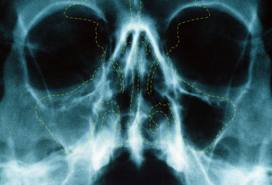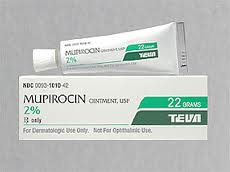Sinusitis after radiation is caused by resistant bacteria

Plain x-ray showing opacification of right maxillary sinus Patients who undergo radiotherapy for nasopharyngeal carcinoma tend to suffer from sinusitis because irradiation causes damage to sinonasal tissue. There is very little information about the organisms causing sinusitis after radiation therapy. Two recent studies from China provided important information about the unique microbiology of sinusitis in these patients. Huang et al ( Am J Rhinol. 2007 ) endoscopically obtained specimens from 25 patients with acute sinusitis that developed sinusitis after irradiation therapy. Staphylococcus aureus comprised 42% and Gram-negative bacilli 36% of all aerobic isolates. The main anaer obic isolates were Peptostreptococcus and Veillonella spp . Polymicrobial infections and beta-lactamase-producing pathogens were highly prevalent. A study by Deng and Tang ( Eur. Arch.Otolaryngolog, 2009) compared the bacteriology of chronic maxillary sinusitis that developed after radiat...

